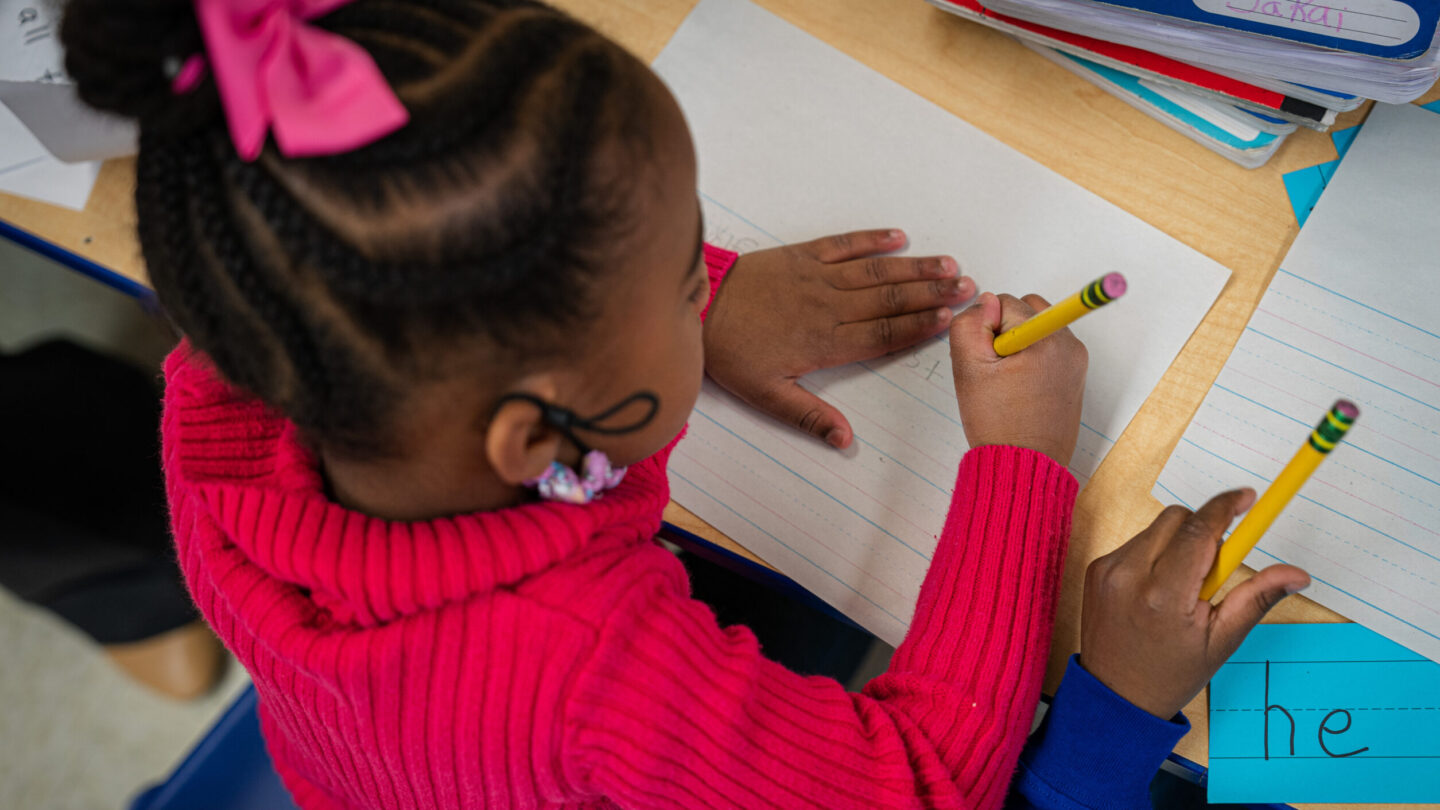The DeKalb County School District became the first in Georgia to offer free preschool for three-and four-year-olds in 2018. The idea was to make sure young students are prepared for kindergarten.
The Early Learning Center at Terry Mill is just south of East Lake. The school district funds the three-year-old classrooms. Four-year-olds are enrolled in the state’s pre-kindergarten program. WABE visited the second year the ELC was open. We went back recently to see how things are going in the center’s fifth year.
Early birds
The halls of the ELC start to fill with the sounds of children at 7:30 a.m. Assistant teacher Cassandra Boatwright greets kids and parents as they come in and offers hand sanitizer to students.
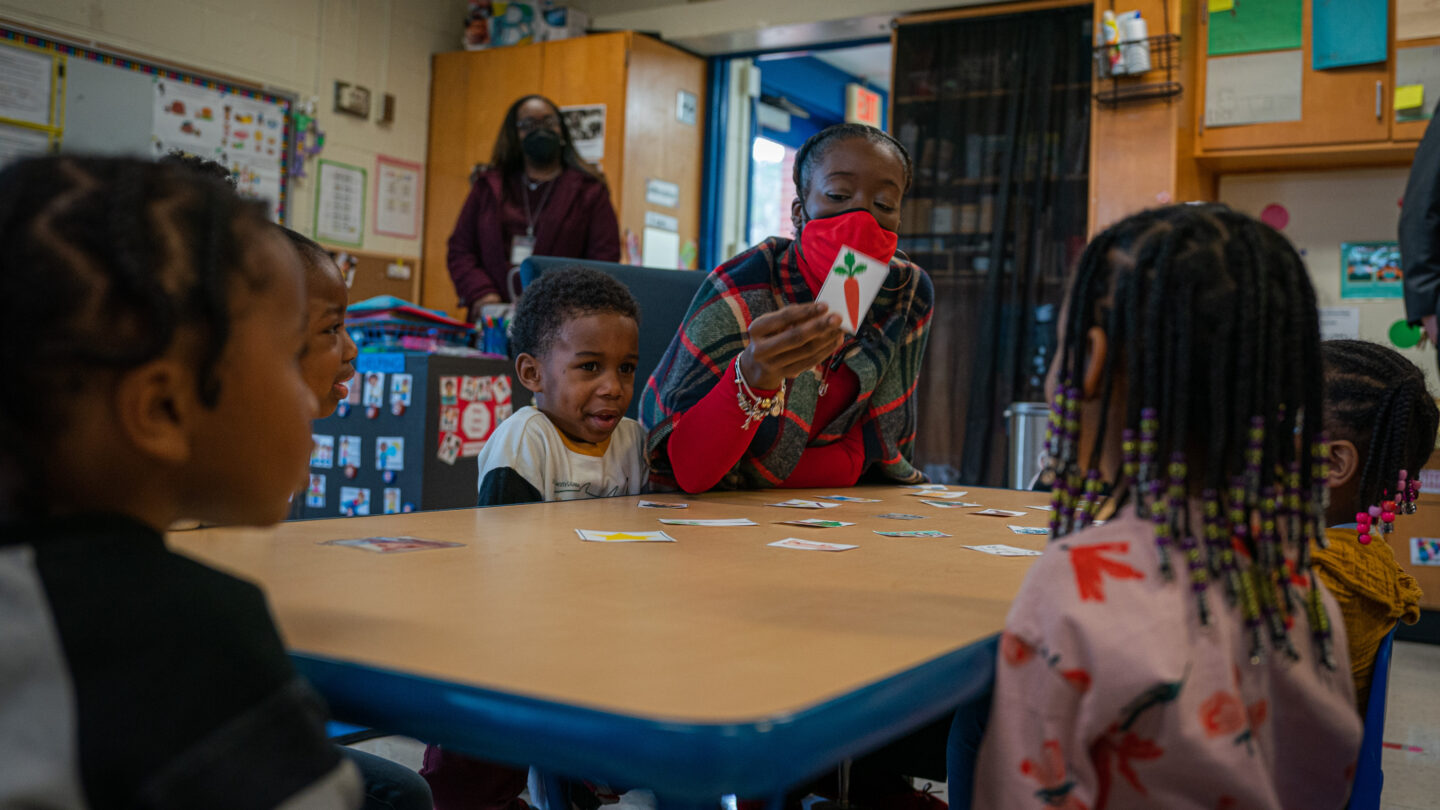
Even though these kids are young, make no mistake: they’re coming to school. This isn’t babysitting.
“Honestly, that was hard for me when I first got here,” says Tamika Mickens. Her four-year-old daughter is in her second year at the ELC. Mickens says getting used to a school routine wasn’t easy.
“I had a very different expectation of care,” she says. “I don’t want to say babying, but you know, she was three.”
But Mickens can tell how much her daughter’s learning at school.
“When I say words she’s not familiar with, instead of just hearing it and letting it go…she’s asking me, ‘Well, what does ‘adjust’ mean?’” she says.
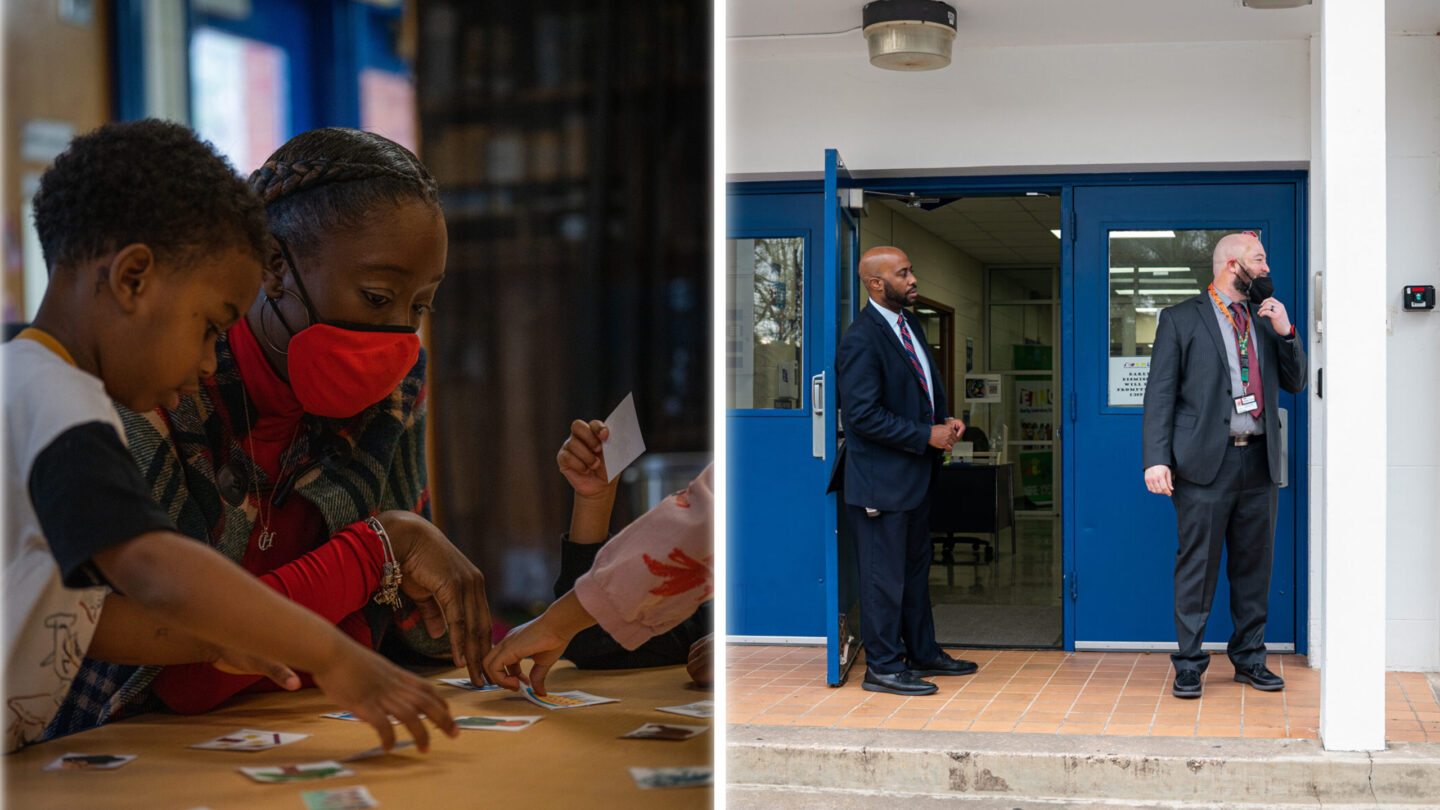
Beyond academics, ELC parents are just as pleased with the social/emotional skills their kids are learning.
“…telling them how to cope and, ‘Express yourself and use your words and tell us how you feel,’” says Larrean Walker, whose daughter is in four-year-old Pre-K. “Those are some of the things that we reinforce at home now. If she’s frustrated, [I say] ‘Tell me what’s going on, let’s talk about it.’”
Is it worth it?
While these parents are clearly content, some experts have questioned whether public investments in early education pay off. Some research has shown there can be a “fade out” effect, where students lose any advantage of early education by second or third grade.
“The key to it is quality,” says Ellyn Cochran, the CEO and president of Quality Care for Children, which helps Georgia families find childcare. She points to the larger body of research that shows children who attend high-quality early education programs tend to have better outcomes.
“Kids who have been in those high-quality early learning experiences compared to those who have not have less special needs that are identified in school, they are less likely to be retained in a grade, they are more likely to graduate from high school,” she says.
In ELC classrooms, teachers are working with small groups of students to identify rhyming words, count, and sound out words. This kind of instruction is what experts call “high quality.” The ELC’s executive director Zack Phillips says it’s why the ELC has been successful. Teachers “double dose” students who are struggling by pulling them aside and tutoring them individually.
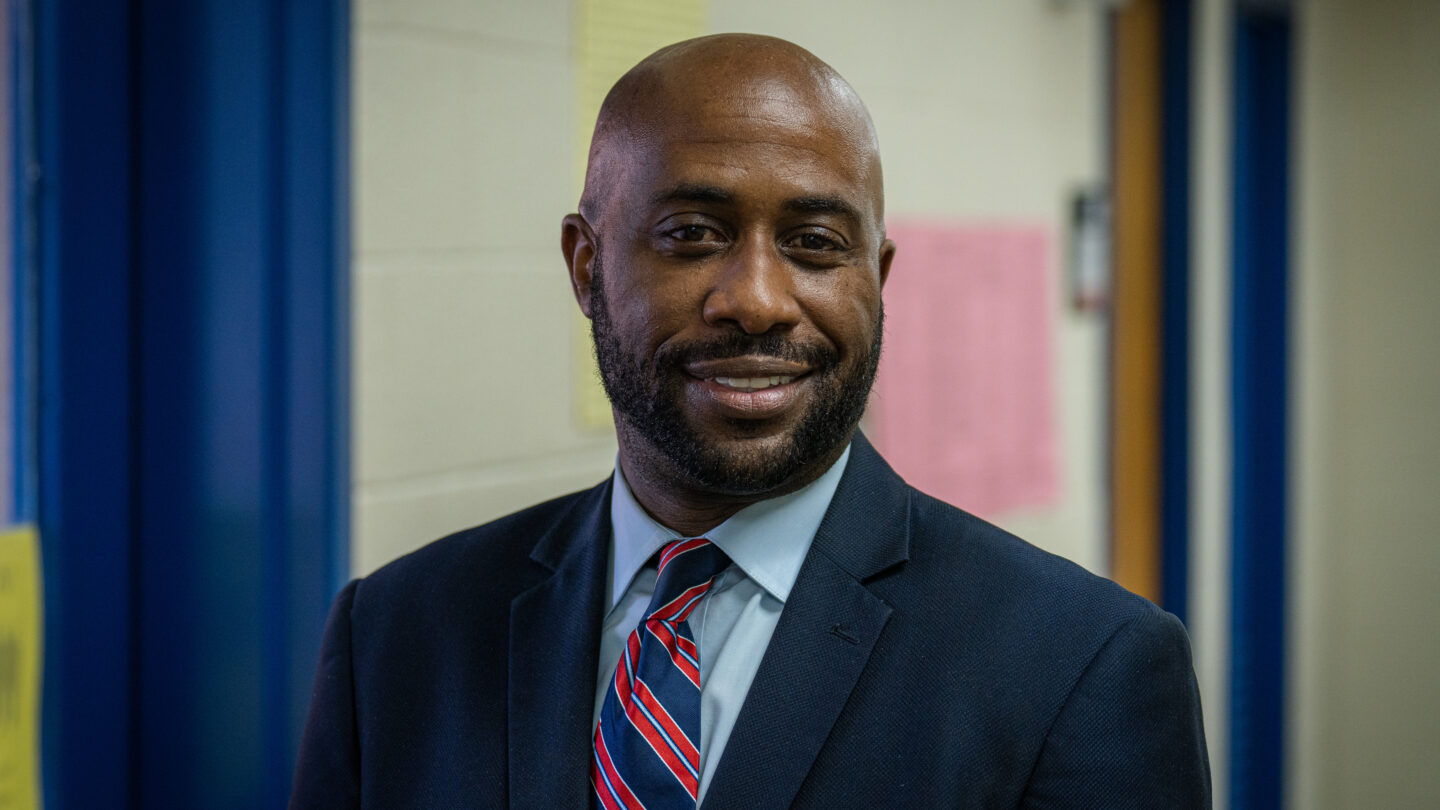
Phillips has led the ELC since it opened. He hand-picked his staff and says 85 percent of students at the center leave ready for kindergarten.
“They have performed extremely well compared to some of their peers across the district,” he says.
A summer “transition” option is available for the 15 percent who aren’t ready. The program is funded through a grant from the Department of Early Care and Learning (DECAL).
What is kindergarten readiness?
Believe it or not-readiness matters, says Pre-K teacher Jacqueline Ball.
“Prior to coming here, I taught kindergarten. Through the years, we saw a disconnect between what is taught in Pre-K, and what is required for kindergarten,” she says. “So it’s been a blessing to be here to fill in those gaps, to make sure that they are kindergarten-ready.”
Art Teacher Mark Knowles also used to teach elementary school students. He wasn’t used to teaching children so young but says now he has different curricula for three- and four-year-olds. With three-year-olds, he focuses on motor skills.
“I’m going to get you scissor ready, I’m going to get you glue ready, I’m going to get you to identify directional words,” he says. “So when I say, ‘Let’s put this at the top, put this at the bottom, put this at the side,’ you know what I’m talking about.’”
Four-year-olds start to learn the elements of art, he says.
“They’re going to start to identify lines, we’re going to start to identify warm and cool colors, we’re going to start to identify texture,” Knowles says. “So when they go to kindergarten, they have already been exposed to that.”
Pre-K teacher Shekila Jackson says parents are often surprised by how much their three- and four-year-olds pick up.
“They’re seeing them reading, they’re seeing them start in addition and their handwriting has improved,” she says.
ELC teachers kept that kind of instruction going through the pandemic. The center is on the DCSD schedule, and the children learned remotely just like K-12 students did.
Shanee Quarterman’s daughter is now in first grade and has qualified for the gifted program. She attended the ELC here during COVID.
“She still learned a lot; they did a lot,” she says. “They still had activities and things for them to do. I didn’t feel like she missed anything like during the pandemic.”
Teachers credit Zack Phillips for developing an online curriculum that was doable for young kids.
“The joy that I receive every day, with hugging the kids, seeing…the excitement that they have on their face[s] when they enter the building…it does something to you, to your mind, body and soul.”
Zack Phillips, executive director of DeKalb’s Early Learning Center
“He set a schedule,” says teacher Chanita Zimmerman.“They had built-in breaks. So that way, it was still age appropriate. [Students] still had opportunities to learn and thrive in the virtual setting.”
Going the distance
Teachers also credit Phillips with making the ELC a good place to work.
“I feel like the ELC chose me,” says school counselor Dr. Jacquelyn Pryor. “Even in my interview, I felt that the way Dr. Phillips spoke about this school from leadership aspects to engagement aspects, parental engagement…I really felt like it would be a great fit for me.”
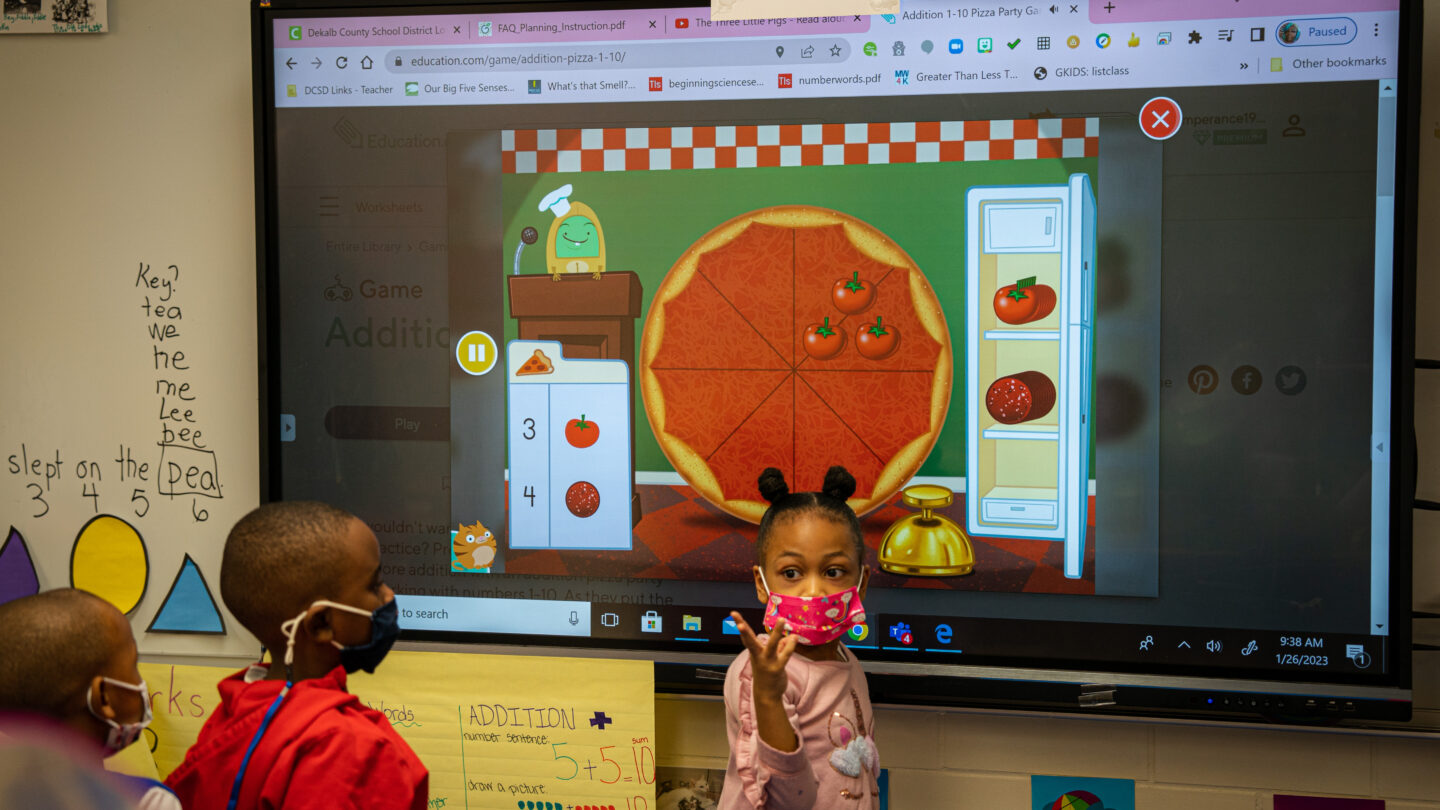
Research shows for school leaders to be effective long-term, they need to stay for several years. Often, good ones are promoted. Phillips says he’s staying put.
“The joy that I receive every day, with hugging the kids, seeing…the excitement that they have on their face when they enter the building,” he says. “It does something to you, to your mind, body and soul.”
DeKalb’s biggest challenge may be finding more leaders like him. The district plans to open six more early learning centers starting next fall. The school district’s other early learning center at Coralwood is a unique model of inclusive classrooms that serves 3-5-year-olds.
Other metro Atlanta districts have started expanding early education, but DeKalb is still the only school system that serves three-year-olds.
